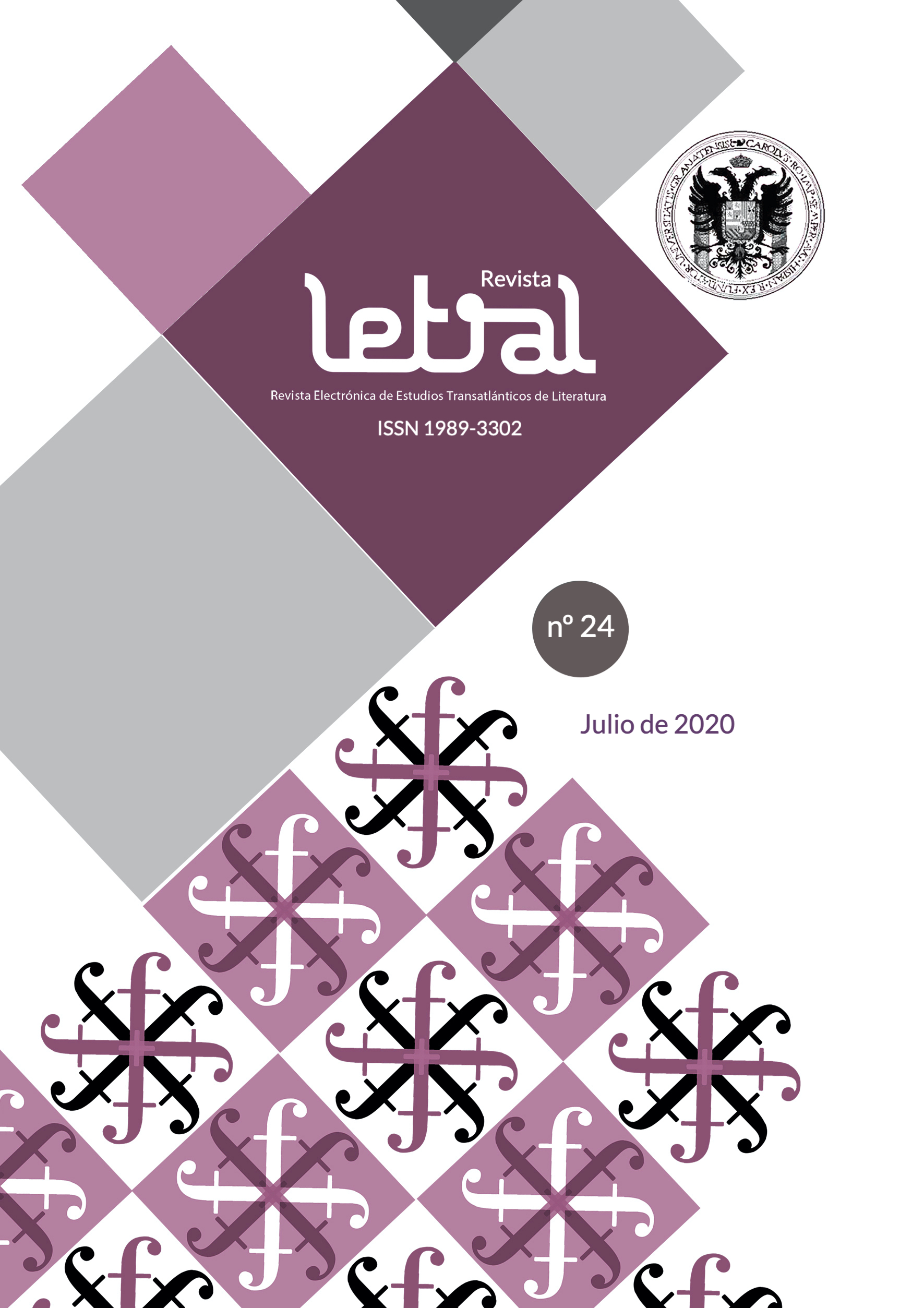New Transatlantic Reading of El Iniciador of Montevideo: The Influence of French Thought on the Ideology of the Young Argentinian Generation
DOI:
https://doi.org/10.30827/rl.v0i24.13759Keywords:
Generation of 37, El Iniciador, argentine socialist art, cultural independence, argentine identity, French idea.Abstract
In the midst of the Rosista government, the young Argentinian generation exiled in Montevideo raised in El Iniciador the banner of critical journalism to lay the foundations of the Argentine state. This work shows that Miguel Cané, Andrés Lamas, Juan Bautista Alberdi and consorts were not simply copyists of the new French writers but, building on postrevolutionary French philosophical postulates, constructed a collection of eclectic principles adapted to the Argentine reality, in order to create the social-man of the modern era. To achieve the national resurgence, four axes of action were proposed: placing literature at the center of social progress, moralizing society by pointing to social parasites, updating laws in accordance with people's habits and customs, and integrating social and human sciences to life. These objectives are based on four fundamental precepts of different French authors to be studied in this article: literature is the expression of society, law is life, jury is freedom and women's emancipation is the first condition of the new sociability.
Downloads
References
Alberdi, Juan Bautista. Obras completas (tomo II). Buenos Aires, Imprenta La Tribuna Nacional, Edición facsimilar, 1886.
Cané, Miguel et al. El Iniciador. Buenos Aires, Kraft, Edición facsimilar, 1941.
Bonald, Louis-Gabriel-Ambroise (Vizconde de). Œuvres de M. de Bonald: Législation primitive, considérée dans les derniers temps par les seules lumières de la raison suivi de Divers traités et discours politiques. París, Librairie d’Adrien Leclerc, 1900.
Condorcet, Nicolas de. Esquisse d’un tableau historique des progrès de l’esprit humain. Avertissement. Paris, Agasse, Edición facsimilar, 1794.
Enfantin, Barthélemy Prosper y Claude-Henri de Rouvroy Saint Simon. “A Charles Duveyrier”. Science de l'homme. Physiologie religieuse, Paris, Librairie Victor Masson, Edición facsimilar, 1813, pp. 200-228.
Fortoul, Hippolyte. “De l'Art actuel”. Revue encyclopédique, LIX, Paris, Bureau de la Revue Encylcopédique, Edición facsimilar, 1833, pp. 107-145.
Ghirardi, Olsen. “Juan Bautista Alberdi y El Iniciador de Montevideo”. Cuadernos de historia, nº. 13, 2003, pp. 15-46.
———. La Generación del '37 en el Río de la Plata. Córdoba, Academia Nacional de Derecho y Ciencias Sociales de Córdoba, serie Ediciones de la Academia Nacional de Derecho y Ciencias Sociales de Córdoba, nº. 39, 2004.
Herrero, Alejandro. “Juan Bautista Alberdi y las ideas políticas francesas. En busca de un proyecto alternativo al orden rosista (1835-1852)”. Utopía y Praxis Latinoamericana, nº. 48, año 15, 2010, pp. 75-85.
Ingenieros, José. La evolución de las ideas argentinas. Buenos Aires, Talleres Gráficos Argentinos, 1918.
Katra, William. La generación de 1837. Los hombres que hicieron el país. Buenos Aires, Emecé, 2000.
Lerminier, Eugène. Philosophie du droit. Paris, Charpentier, Edición facsimilar, 1835.
Leroux, Pierre. La grève de Samarez. Paris, Dentu, Edición facsimilar, 1859.
Martin, Aimé. Éducation des mères de famille ou De la civilisation du genre humain par les femmes. Paris, Charpentier, Edición facsimilar, 1843.
Myers, Jorge. “La Revolución en las Ideas: la Generación romántica de 1837 en la cultura y en la política argentina”. Historia argentina. Revolución, República, Confederación (1806-1852), tomo III, Buenos Aires, Sudamericana, 1998, pp. 393-414.
Sadler, Mélanie. “Une révolution du globe : le « peuple-monde » d’Alberdi ou la résolution transnationale du cycle révolutionnaire”. Nuevo Mundo Mundos Nuevos, Virtual classroom, 2016, disponible en: http://nuevomundo.revues.org/69545.
Weinberg, Félix. El Salón Literario de 1837. Con escritos de M. Sastre — J. B. Alberdi — J. M. Gutiérrez — E. Echeverría. Buenos Aires, Hachette, 1977.
Published
How to Cite
Issue
Section
License
Revista Letral is an open access journal under a Creative Commons Atribución-NoComercial 4.0 license.
The works published in this journal may be reused, distributed and publicly presented for non-commercial purposes, provided that: cite the authorship and the original source of the publication (journal, publisher and URL of the work).
We strongly recommended you to share our published articles in social and scientific networks, institutional and public repositories, personal or institutional websites, blogs, Google Scholar, ORCID, ResearchID, ScopusID, etc.
The journal allow the author(s) to hold the copyright and to retain publishing rights without restrictions.
We are completely free, both for readers and authors.














